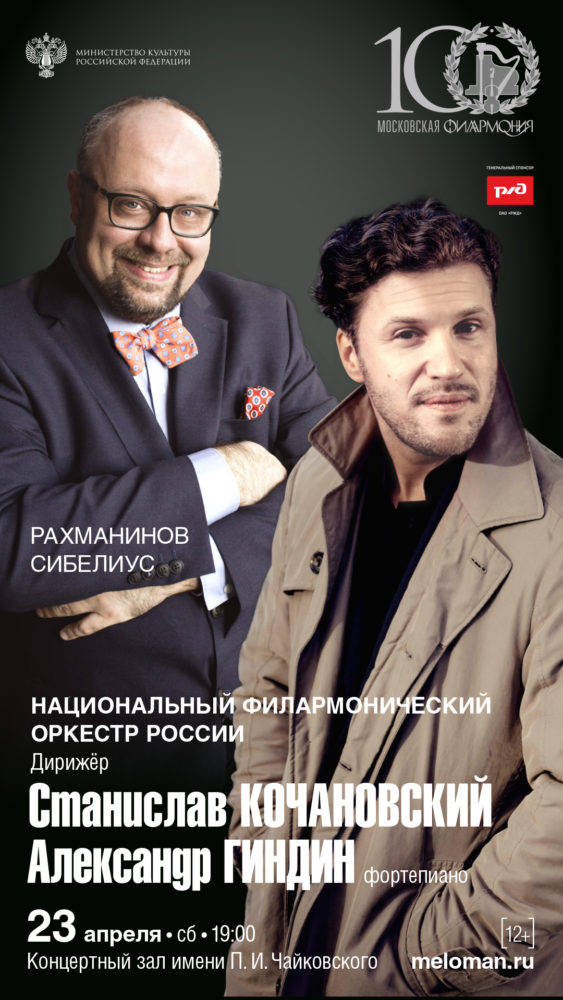23 April, 2022 | Tchaikovsky Concert Hall
Subscription No. 25: "National Philharmonic Orchestra of Russia"
Soloist – Alexander Ghindin, piano
Conductor – Stanislav Kochanovsky
Rachmaninoff. Concerto No. 4 for piano and orchestra in G minor, Op. 40 (1st edition)
Rachmaninoff. «The Isle of the Dead», symphonic poem, Op. 29
Sibelius. Symphony No. 7 in C major, Op. 105
Its last concert of the season at the Tchaikovsky Hall, the NPR will have, as it was a year ago, under the baton of Stanislav Kochanovsky, the prodigious intellectual conductor with whom the orchestra has been working for several years. The European career of the maestro has been gaining momentum: he collaborates with top orchestras and opera halls (also in Russia), is a permanent guest at important festivals, e.g. in Verbier and St-Petersburg (The White Nights). With the NPR the conductor always chooses inventively constructed programs, now presenting to the Moscow audience a very rarely performed work that is Jean Sibelius's Seventh Symphony.
The night at the Tchaikovsky Hall will start with Rachmaninoff's Fourth Piano Concerto, one of the few works written by the composer after he had left Russia. In its stylistics the score is closer to Rachmaninoff's early period, in particular to his piano preludes or the Finale of the First Concerto. However the virtuoso brilliance of the piano part, the great scale of the form and nuances display the mature master. One of the peculiar attributes of the Concerto is its nostalgic tone prevailing in the framing movements and ceding only in the lyrical core of the work – the pastoral Largo.
The piano part will be played by Alexander Ghindin, not only a brilliant virtuoso, but also a well-known researcher and a wide-range musician, who also heads the Hermitage ensemble. Unlike his colleagues, Ghindin prefers to play the first, rarely heard editions of Rachmaninoff's Concertos, and the coming performance will not be an exclusion out of his rule.
The concert will go on with Rachmaninoff's Symphonic Poem “The Isle of the Dead”. It was inspired by the painting of the same name by Swiss artist Arnold Böcklin, which depicts Charon's boat at a somber island whose rocks under cypresses ogle with ominous holes of crypts. Using musical means the composer recreates the painted image, immovable as it is, leading the audience to the mystic junction of the worlds. He introduces into the score the Dies Irae theme, one of the most important motifs in the Rachmaninoff corpus, which prophesies the imminence of the Last Judgment.
The night will end with Sibelius's last symphony, the Seventh, which is seldom executed in Moscow concert halls. Composed as a one-movement poem, the score incorporates all traditional movements of the symphonic formula. The composer conceived the overall work as “joy of life and vitality with appassionato sections” crowned by a “Hellenic Rondo”, symbolizing the arousal of forces of Nature. At its premiere in Stockholm the opus was performed as Fantasia sinfonica No.1, but before the score publication Sibelius changed its genre designation.




